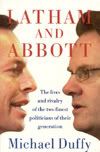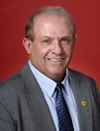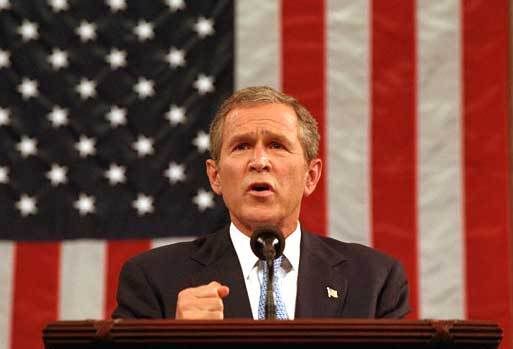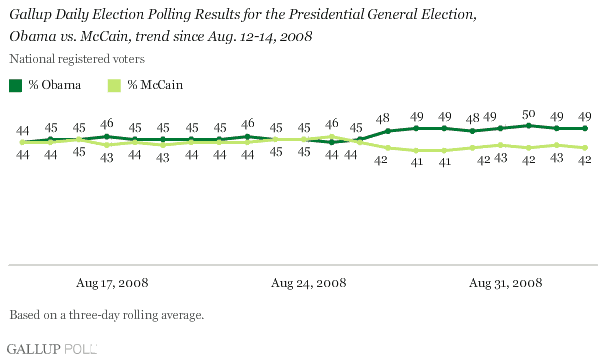Just imagine what the sneering left intelligentsia, in the United States and elsewhere, would have said if a Republican vice-presidential candidate had told CBS News that "when the stockmarket crashed [in 1929], Franklin Roosevelt got on television" and informed Americans what had happened.
No doubt scores of left-liberal types would have lined-up to say the Republican Herbert Hoover, and not the Democrat Roosevelt, was in the White House when the Great Depression began, and regular TV broadcasting did not occur in the US until about 1941.
You mean left-liberal like the Daily Show? or the new york times?
Either way, everyone sees it for the slip of the tounge it is, and not indicative of a lack of knowledge, when coming from the chairman of the Senate foreign relations committee, judiciary committe, and well respected Senator after 26 years in the legislature. But Hendersons probably warming up to show this in context right ?
Yet the Democrat Joe Biden made these howlers in an interview with Katie Couric. She did not correct the vice-presidential candidate. This is the same Couric who grilled Sarah Palin in an interview which aired a few days later. The line of this interrogation turned on the thesis that the Governor of Alaska is not well enough informed to hold the second-highest office in the US.
Without any need to quote, Biden's gaffe is being compared here to an entire interview. Try and just sort out this effort by Palin in the Couric interview for comparison. Similar economic focus.
COURIC: Why isn’t it better, Governor Palin, to spend $700 billion helping middle-class families struggling with health care, housing, gas and groceries? Allow them to spend more and put more money into the economy? Instead of helping these big financial institutions that played a role in creating this mess?
PALIN: That’s why I say, I like ever American I’m speaking with were ill about this position that we have been put in where it is the tax payers looking to bailout.
But ultimately, what the bailout does is help those who are concerned about the health care reform that is needed to help shore up the economy– Helping the — Oh, it’s got to be about job creation too. Shoring up our economy and putting it back on the right track. So health care reform and reducing taxes and reining in spending has got to accompany tax reductions and tax relief for Americas. A
And trade we’ve got to see trade as opportunity, not as a competitive scary thing. But 1 in 5 jobs being created in the trade sector today. We’ve got to look at that as more opportunity. All those things under the umbrella of job creation.
This bailout is a part of that.
Get that ? The bailout is 'help those who are concerned about healthcare reform', and 'reducing taxes' and 'reigning in spending' and 'trade as an opportunity' and the 'umbrella of job creation'.
Now we've all been there, I see students doing it 5 times a day. The mouth starts talking, the brain hurries behind, throwing out points in a desperate attempt to find either a loop to emphasize their first impulse/point or a circuit breaker to let the pain end, otherwise they simply will trail off in confusion. Hell i do it myself at times. But I'm not running for Vice-President of the USA!
But according to Henderson (or at least he hopes his readers are dumb enough/cant use google to compare) these two things are pretty much equal. With it being damning that the 'liberal intelligencia' is making a fuss about one and not the other.
So on the basis of one candidate having a slip of the tongue, and one being utterly confused, Henderson figures that :
Biden and Palin go head-to-head in their only debate on Friday (Sydney time). Both are able performers so, in scoring parlance, a draw is the likely outcome
Henderson then wanders into attacking some unknown nobodies, depicting satirists as serious commentators:
The feminist Maureen Dowd has depicted Palin as "the glamorous Pioneer Woman, packing a gun, a baby and a Bible"and trading on gossip:
the NBC News commentator Andrea Mitchell has been reported as maintaining that "only the uneducated would vote for Mrs Palin"
(Got to love that use of the word "reported" for a unsourced claim about a reporter. She didn’t report it, it was simply said by others that she said so, but easy to miss over the morning coffee/or for those who want to miss such nuance)
But lets go on:
Palin has responded as well as possible to this criticism. She pointed to her experience as mayor of Wasilla (population 7000) and, more recently, Governor of Alaska. For an Australian comparison, the position of Alaskan governor would equate with the Tasmania premiership. Tasmania is Australia's smallest state but those who become its premier are invariably politically skilled. The former prime minister Joe Lyons, who was once premier of Tasmania, comes to mind.
Honestly I have no idea what this paragraph is doing in the story. Either Henderson thinks his readers have so little idea about Alaska that they need to be informed its comparable to Tasmania, OR he is comparing Palin to Joe Lyons, who spent 19 years in the tasmanian legislature, 5 of them as both Premier and Treasurer. And he spent 3 in the federal ministery BEFORE he became Prime Minister.
Palin for the record spent 6 years as a tiny city mayor, and is in her second year as governor.
How is that possibly comparable ?
Sadly that’s only page one of his inanity. Lets move as quickly through this as we can eh?
Moreover, Palin responded to the Couric putdown that she has travelled very little outside of the US with a matter-of-fact depiction of her life so far: "I'm not one of those who maybe come from a background, you know, kids who perhaps graduate [from] college and their parents give them a passport and give them a backpack and say go travel the world. No, I've worked all my life. In fact, I usually had two jobs until I had kids."
First, since when was it a putdown to be asked if a person attempting to become one of the most powerful people in the world had ever you know... visted the world ?
And Palin's response is nothing to be proud of, being simple class warfare, and not in anyway an excuse. I met dozens of American kids when in europe who had neither rich parents, nor didn't have to work all their life. They worked and saved so they could visit the rest of the world. It's a sacrafice that only the genuinly curious make, but that has always been very very open to Americans.
Second as Eunomia blogger Daniel Larison points out, there was more to her answer:
Palin: "I was not a part of, I guess, that culture. The way that I have understood the world is through education, through books, through mediums that have provided me a lot of perspective on the world."
Larison: "if she has spent so much time with book-learning about the rest of the world why is it that she doesn’t seem to know anything? It should not necessarily be a problem that she has not traveled abroad, provided that she does know something about international affairs, but she manages to combine a lack of personal experience with a lack of knowledge about other countries."
Palin might not have been able to afford it, but her very real lack of any knowledge about the foreign world, or indeed even American Foreign Policy (what is that Bush Doctrine again ?) indicates she wasn't even curious about it either. And no one, no matter how rich travels overseas if they arn't curious about the world (hello G.W. Bush)
From here though it just gets weird. Henderson smugly highlights Bill Clinton emphasising these things about Palin and her key attributes
Bill Clinton .. said he could only judge Palin from how he believes she is going in his home state of Arkansas "where half the people live in communities of less than 2500 and there are people who are pro-choice and pro-life and more than half the people have a hunting or fishing licence". He added that "they like families that hang together, that deal with adversity, that are proud of all their members".
So its a good thing that she's pro-choice, pro-life, has a family and hunts ?
Wrong- Or at least when it comes from the mouth of a journalist
The anti-Palin ethos prevalent among left-liberals in America can also be found in Australia, at differing levels of intensity. For example, on September 17, the 7.30 Report presenter Kerry O'Brien introduced a report on Palin with a reference to "the pro-gun, pro-life mother of five". For the record, O'Brien does not mention his own family arrangements on either the 7.30 Report website or in his Who's Who In Australia entry. In the subsequent report, Tracy Bowden referred to the Governor of Alaska as "the moose-hunting, evangelical mother of five". Yes, we know.
Mercifully this thing is almost coming to an end (after some attack on the left and suburban Australia. I've no idea the relevance, considering Alaska is as far from suburbia as you can get.)
By the way, I will be watching[the VP debate] and rooting for Palin.
I'm sure we're all shocked.
The sad thing is that Henderson is actually the exact opposite of Palin in terms of their approach to politics
Henderson attended the Jesuit Xavier College in Melbourne. He studied Arts and Law at the University of Melbourne, prior to completing his Ph.D. He taught at Tasmania and La Trobe universities before working for four years on the staff of Kevin Newman in Malcolm Fraser’s Coalition government.
From 1980 to 1983 he was employed in the Commonwealth Department of Industrial Relations and was Chief-of-Staff to John Howard between 1984 and 1986 (during which time Howard was Deputy Leader, and later, Leader of the Liberal Party of Australia). Gerard Henderson was appointed by the Keating government to the board of the Australia Foundation for Culture and the Humanities and by the Howard government to the editorial board of the Documents on Australian Foreign Policy series.
As a commentator Henderson is on the conservative side of politics on issues such as industrial relations, national security and the Iraq War, while holding progressive political views on the Australian republic, asylum seekers, multiculturalism and euthanasia. His columns defended the former Howard government policy on Iraq and national security since the September 11 attacks.
Gerard Henderson is the author of Mr Santamaria and the Bishops (1982), Australian Answers (1990), Gerard Henderson Scribbles On (1993), Menzies' Child: The Liberal Party of Australia (1994, second edition 1998) and A Howard Government? Inside the Coalition (Harper Collins, 1995) - as well as numerous articles and essays
He has a PhD, experience in government, and numerous essays and books to his credit.
He is smart, articulate, and when not writing such culture wars pap, a coherent considered voice for his political ideology.
(Though Palin was a sports newscaster. I guess that makes it about even eh Gerard ?)
Every ideology or political grouping has to accommodate those who's views come from their intellectual engagement with the world, and those whose similar views come from natural, instinctive, gut calls. Keeping these two groups together is hard.
But few sights have been as pathetic as seeing the conservative intelligencia prostrate itself before the 'feel don’t think' wing of their party, denying both the intelligence, education and experience they had for so long regarded as critical before one could earn a public voice and be taken seriously.





